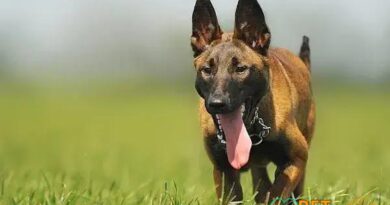What is Skills
What is Skills?
Skills refer to the abilities and competencies that enable individuals to perform tasks effectively and efficiently. In the context of dog training and care, skills encompass a wide range of activities, from basic obedience commands to advanced behavioral training techniques. Understanding what skills are essential for both dogs and their owners can significantly enhance the relationship between them.
Types of Skills in Dog Training
There are various types of skills that can be developed in dog training. These include basic obedience skills such as sit, stay, and come, as well as more advanced skills like agility training and scent detection. Each type of skill requires different training methods and approaches, making it crucial for dog owners to identify which skills are most relevant to their dog’s needs and personality.
The Importance of Social Skills
Social skills are vital for dogs to interact appropriately with other dogs and humans. These skills include understanding body language, responding to social cues, and exhibiting appropriate behavior in various environments. Training dogs in social skills not only helps them become well-adjusted pets but also ensures a safer and more enjoyable experience for everyone involved.
How Skills Impact Dog Behavior
The skills that a dog possesses can significantly impact its behavior. Well-trained dogs are often more confident and less anxious, leading to fewer behavioral issues. Conversely, dogs lacking essential skills may exhibit problematic behaviors such as aggression, fearfulness, or excessive barking. Therefore, investing time in skill development is crucial for fostering positive behavior in dogs.
Skill Development Techniques
There are numerous techniques for developing skills in dogs. Positive reinforcement, clicker training, and consistency are among the most effective methods. By rewarding desired behaviors, dog owners can encourage their pets to learn new skills and reinforce existing ones. Additionally, regular practice and patience are key components in the skill development process.
Assessing Your Dog’s Skills
To effectively train a dog, it is essential to assess its current skill level. This can be done through observation and interaction, allowing owners to identify areas that require improvement. Regular assessments help track progress and adjust training methods accordingly, ensuring that the dog continues to develop its skills over time.
Skills for Specific Breeds
Different dog breeds may have unique skill sets based on their characteristics and historical roles. For instance, herding breeds may excel in agility and obedience, while hunting breeds might have strong scent detection skills. Understanding the inherent skills of a breed can guide owners in tailoring training programs that align with their dog’s natural abilities.
The Role of Professional Trainers
Professional dog trainers play a crucial role in skill development. They possess the expertise to identify specific skills that need improvement and can provide tailored training programs. Engaging a professional trainer can be particularly beneficial for first-time dog owners or those facing challenges in training their pets effectively.
Life Skills for Dogs
Life skills are essential for dogs to navigate their environment safely and confidently. These skills include basic commands, leash manners, and appropriate behavior in public spaces. Teaching life skills not only enhances a dog’s quality of life but also strengthens the bond between the dog and its owner, fostering a harmonious living environment.
Continuous Skill Improvement
Skill development in dogs is an ongoing process. As dogs grow and their environments change, it is essential to continue reinforcing and expanding their skill sets. Engaging in regular training sessions, socialization opportunities, and new activities can help ensure that dogs remain well-rounded and adaptable throughout their lives.



